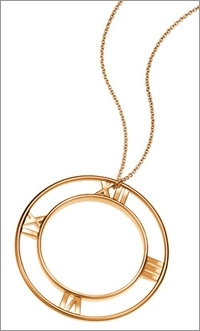retail
Tiffany, Target Join 'No Dirty Gold' Movement
- by Sarah Mahoney @mahoney_sarah, February 13, 2014

In the latest step toward cleaning up consumer brands, retailers Tiffany, Target and Helzberg have joined the “No Dirty Gold” movement, pledging to adopt less damaging mining practices.
Gold may be glittery, but it’s an inherent environmental problem, and according to the group, “one of the world’s most destructive industries.” It estimates producing a single ring creates about 20 tons of mine waste. The Environmental Protection Agency says mining continues to be the country’s most toxic industry, accounting for 41% of toxic waste, including vast amounts of arsenic, lead and mercury. The group chose Valentine’s Day to make its announcement because an estimated 20% of V-day gifts will be jewelry, amounting to some $4 billion in sales.
advertisement
advertisement
Marketing experts say it’s just one more example of large brands acknowledging that consumers want cleaner products. Recently, Cheerios ditched GMOs. Kraft Singles has promised to lose its artificial preservatives. And Chik-fil-A is now promising its customers antibiotic-free chicken.
“It is not a surprise to see gold producers agreeing to new standards on human rights and the environment,” says Geoff Beattie, global practice leader, corporate affairs at Cohn & Wolfe, based in London. “This is part of a major global trend, where any industry with a complex supply chain cannot be seen to apply different standards in developing countries to those operating in their home markets,” he tells Marketing Daily in an email. “It’s just not possible for companies to hide when it comes to issues such as the environment and human rights in ‘far away’ places.”
The group’s Golden Rules pact includes a promise to study metals supply chains, improve supplier sourcing criteria, increase recycled gold content, and seek more responsibly produced metals.
“There may not be an immediate reward,” Beattie adds. “But companies who are ahead of the game will benefit financially and will have a better reputation.” Cohn & Wolfe, along with other WPP agencies, conducts an annual Green Brands study.
Ultimately, he says, brands have had to become more responsive as social media has gained in clout. “Twitter is where companies can be ‘held out to dry’ for their environmental and social standards. Conversely, it’s the space where companies need to engage in order to educate consumers on their achievements.”


